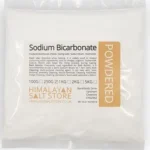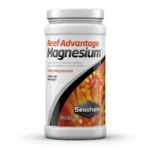Ok, so you’re at the stage where you know you’ll need to dose your reef tank with Calcium, Alkalinity and Magnesium as your growing corals deplete it.
Maybe you’ve already tried several different dosing supplements or even tried making your own.
You could have already invested in a dosing pump or are thinking about it…
But what you are really looking for is a practical method on how to go about it.
Systematically…
In this article, we will show you exactly what we do, which dosing products we use, how much we use, and how to get started.
Table of Contents
What Is Two Part Dosing
You may well have come across the term ‘2 Part Dosing’. It is simply a way of replacing the calcium carbonate that your corals use to grow, by adding two separate solutions of calcium and carbonate (alkalinity) in equal amounts back to the water.
Many commercially available supplements are sold as ‘2 part’ and they will certainly do the job but they can prove costly over time.
Our DIY Two Part Dosing Recipes
These are the products we use:-
Alkalinity (KH) Dosing Recipe
 | Sodium Bicarbonate Bicarb Baking Soda 2kg | Check Price on eBay >> *Free UK Delivery (As an eBay Partner, I may be compensated if you make a purchase. This does not affect the price you pay.) |
Recipe : Mix 80g with 1 litre of RO water to form your dosing solution.
Calcium Dosing Recipe
 | Calcium Chloride Dihydrate Flake 1kg | Check Price on eBay >> *Free UK Delivery (As an eBay Partner, I may be compensated if you make a purchase. This does not affect the price you pay.) |
Recipe : Mix 65g with 1 litre of RO water to form your dosing solution.
Magnesium Dosing Recipe
Magnesium is also required as it allows calcium and carbonate to stay free in the water and not calcify (so rather than 2 part dosing, it’s actually 3 part).
 | Seachem Reef Advantage Magnesium 1.2kg | Check Price on eBay >> *Free UK Delivery (As an eBay Partner, I may be compensated if you make a purchase. This does not affect the price you pay.) |
Recipe : Mix 80g with 1 litre of RO water to form your dosing solution.
(If you require more or less of the above three solutions, adjust the recipe calculations accordingly.)
Ideal Water Parameters For a Reef Tank
These are the ideal water parameters for a reef tank and what you should aim for:-
| Alkalinity (KH) | 7-11 dKH |
| Calcium | 420 – 460 ppm |
| Magnesium | 1250 – 1380 ppm |
Calcium and Alkalinity should be broadly in balance. You can use this calculator to get a rough idea.
The magnesium level should be approximately 3 times the calcium level. So for a calcium level of 450 ppm, magnesium should be around 1350 ppm.
TIP! Pick a salt mix that closely matches the parameters you are trying to achieve. Otherwise, every time you do a water change, you will throw the parameters out and have to compensate.
Reef Tank Dosing Instructions
First, test your water for all three parameters of Alkalinity (KH), Calcium and Magnesium.
For more information on testing see our article, How to Test Your Saltwater Fish Tank and for the best test kits, check our reviews here, Best Test Kits for a Saltwater Fish Tank.
To begin dosing, adjust calcium and alkalinity to the level you are aiming for.
DO NOT USE our recipes above for these initial adjustments. (Our recipes are for ongoing daily dosing only.)
Rather, use the calculator below to determine how much of each of the dosing supplements you need:-
Take care not to increase any parameter, in one dose, by more than the amount recommended by the calculator.
Do NOT dose different solutions of calcium, carbonate and magnesium at the same time. Leave a gap of at least 30 minutes between different solutions.
You will need to test all three parameters every couple of days until you get them approximately in the ranges you want.
Note: If you find you cannot raise calcium and alkalinity to your desired level, it is likely that your magnesium level is too low so raise that to at least 3 times your desired calcium level.
Once you get all three parameters in the ranges you want you can begin daily dosing using our dosing recipes above.
Below is a suggested daily schedule for dosing both our calcium and alkalinity solutions. As every tank is different this should only be taken as a rough guide to get you started.
| Tank Type | Starting Dose |
| Few Corals or New Tank | 1.5 ml / 25 litre |
| Soft Corals Only | 2.5 ml / 25 litre |
| Mixed with LPS | 5.0 ml / 25 litre |
| SPS | 7.5 ml / 25 litre |
For daily magnesium dosing start at 0.5 – 1.0ml / 25 litre
Do NOT dose the different solutions at the same time. Leave a gap of at least 30 minutes between solutions.
After 2 – 3 days of dosing, test the alkalinity again and note whether it has increased, decreased, or stayed the same, and adjust dosing accordingly.
If you increase or decrease the alkalinity dose, adjust the calcium dose by the same amount.
Continue to test the alkalinity every few days and adjust the dosing as required until you have determined the proper dose.
Continue with this dose until there is a good reason to increase it, such as adding more corals or if alkalinity drops significantly as corals grow.
On an ongoing basis, we recommend testing alkalinity weekly.
Test calcium weekly and magnesium every two weeks. If either of these gets out of range use the Reef Chemistry Calculator above to determine a corrective dose. If either gets too high, suspend dosing for a few days.
You can try to dose the solutions manually but you will quickly find this becomes too onerous so we recommend getting a good dosing pump. We review the top ones here, Best Dosing Pumps For Reef Tanks.
DIY Two Part Dosing Recipe FAQs
What is a two part dosing? – Your corals use calcium and carbonate to grow their skeletons. Two-part dosing is the process of replacing that used by your corals to grow, by adding two separate solutions of calcium and carbonate (alkalinity).
What is the best alkalinity for coral growth? – The alkalinity level maintained in a reef aquarium should be between 8 and 12 dKH. If you are only keeping soft corals you should maintain alkalinity towards the lower end of that scale, for LPS and SPS corals you should aim for the higher end.
Does coralline algae consume alkalinity? – Yes, coralline algae will consume a lot of both carbonate (alkalinity) and calcium. If you wish coralline algae to grow you should increase your dosing of both.
Do I need a dosing pump for a reef tank? – You can try to dose calcium and carbonate manually but you may find this becomes too much of a chore. We recommend getting a good dosing pump to automate the process.
